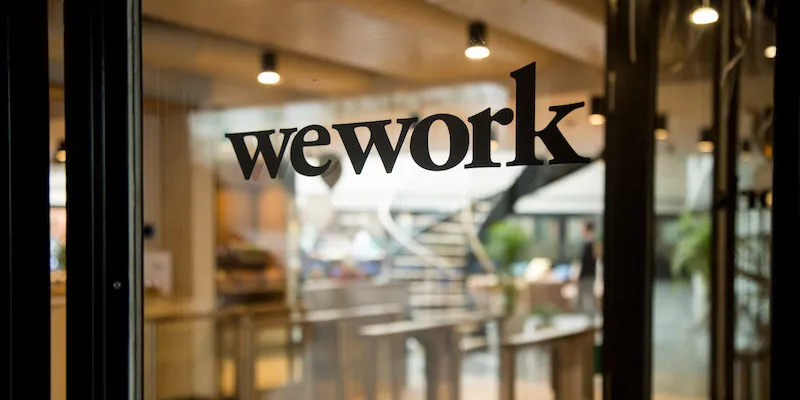The Startup Guide series of books, launched in 2014 by Copenhagen-based publisher Sissel Hansen, covers over 20 cities such as London, Stockholm, Lisbon, Capetown, and Miami. See our reviews of the guidebooks for New York, Berlin, Munich, Zurich, Johannesburg, and Singapore.
Startup Guide Paris is spread across 220 pages and makes for an informative and entertaining read, with profiles of founders, co-working spaces, accelerators, and other ecosystem players.
Paris is about much more than cuisine, fashion, and romance – it is also emerging as a hot startup hub, begins Sissel. There are influential entrepreneurs like Xavier Niel, J.A Granjon and Marc Simmoncini, and a new generation of startups like Blablacar, Sigfox, Criteo, and Doctolib.
Investment in startups increased from €50 million in 2014 to almost €3 billion in 2016. The government has launched the La French Tech initiative, and the world’s biggest startup campus, Station F, was opened in 2017.
“It is through innovation that we will be able to meet the major challenges of the 21st century, whether ecological, economic, social or democratic,” writes Anne Hidalgo, Mayor of Paris.
The city has over 60 incubators and accelerators, hundreds of co-working spaces, and 30 digital manufacturing workshops. Paris aims to be a “real open-air laboratory” for all innovators, from startups to established companies.
Overview
The book begins with an overview of Paris facts and necessities such as rent (affordable away from the city centre), getting around (public or shared transportation, biking), people (analytical, not unhappy), job market (competitive, slightly slow-moving), language (French is key, though English is increasingly spoken), and setting up a business (bureaucratic, tricky).
The population of the greater Paris region is around seven million. It is a major artistic and cultural capital, boasting over 200 museums, 1,000 art galleries, 2,100 historic monuments and 420 parks.
Creative pioneers from Paris range from Marie Curie and Louis Pasteur to Coco Chanel and Kenzo. Outstanding neighbourhoods include the Latin Quarter, Montmartre, La Villette, Marais and Montparnasse.
Paris accounts for about a third of all French startups, and two-thirds of investment into French startups. More youth now want to create their own company, and there is a notable presence of international employees. Tech giants like Google, Microsoft, Facebook, and Rakuten have research centres in Paris.
I. Startup profiles
One section of the book profiles 12 startups based in Paris. They include Archive Valley (platform for footage requests and archive providers), Baby Sittor (app connecting parents with trusted babysitters), and Belty (smart belt combing wellbeing, fashion and technology).
Compte-Nickel allows customers to create bank-free accounts by leveraging the wide network of tobacco and convenience stores. It supports more than 600,000 customers across the country, and opens more than 1,000 accounts per day, more than any other bank in France.
Dataiku (‘data’ and ‘haiku’) provides collaborative tools for data science projects. It has a presence in Paris, New York and London. The platform drust is an app-based tool to make drivers better at driving. It gives them access to data from the automotive ecosystem.
Innerspace VR is a virtual reality entertainment studio to help people craft better interactive stories. Ulule is a crowdfunding site with efficient tools for project creators along with mentorship support; it has financed more than 17,000 projects with around €80 million.
La Ruche qui dit Oui! is a web platform that connects people directly to farmers and fresh produce. Its ‘food assemblies’ combine sustainable consumption with fairer revenues, and have been launched in Belgium, Spain and Germany as well.
Never Eat Alone is a web and mobile app that allows people within large corporations to connect on interests both professional and personal. Its clients include corporates like L’Oréal, Allianz, Danone and Société Générale.
Stanley Robotics provides robotic services in public environments, such as car parking in the Charles de Gaulle Airport. Talent.io is a recruitment marketplace for the technology industry; its founders sold their first startup (Cruisewise) to TripAdvisor,
II. Startup ecosystem
Two sections of the book profile the support system for startups, ranging from co-working spaces to programmes at incubators and accelerators. For example, Agoranov is a science and tech incubator, and has hosted over 320 startups, including Criteo (retail marketing).
The French Tech Ticket is a one-year programme and grant to attract international startup talent to France; the French Tech Visa is a fast track visa programme for startup founders and investors. Within two years, over 1,000 applications from more than 100 countries were received, and over 100 startups were accepted.
NUMA Paris runs a three-month long acceleration programme for startups. It arranges match-days where startups meet 15 mentors in 48 hours. Founders are encouraged to focus on the main product feature early on.
Paris&Co is the economic development and innovation agency of Paris, and has also become an innovation and incubation platform. In 2016, it nurtured more than 270 French and 30 international startups. Its Open Innovation Club and Innovation Dating sessions connect corporates and startups. It supports projects and experiments to make Paris a “hyperactive and dense playground for innovation.”
The International au Féminin is an international network and thinktank promoting women in tech industries (corporates as well as startups). It advocates entrepreneurship and intrapreneurship opportunities, and encourages members to think global.
Paris Pionniéres is a not-for-profit incubator for women entrepreneurs. Since 2005, it has launched 300 startups cofounded by women. Its accelerator program WoDi accepts 40 new startups per year. The aim is to go beyond the ‘bro’ culture of startups and help women entrepreneurs find suitable mentors, investors and business partners.
TheFamily nurtures startups through education and connections, and has empowered over 500 startups. The ‘Black Swan Factory’ has a presence in Paris, Berlin and London. It looks for founders with a ‘pay it forward’ mentality, believing that sometimes you have to give before you get.
The book also profiles nine co-working spaces, such as Kwerk (‘quirky’), which has custom-made installations from around the world to keep the place lively. It also provides a ‘co-breathing space’ with yoga sessions, showers and training rooms.
“It’s becoming prestigious to be an entrepreneur, but it can be lonely, too,” observes Leonid Goncharov, CEO and Founder of Anticafé République. It provides entrepreneur connects across its spaces in Paris, Lyon and Rome.
DRAFT Ateliers is a makerspace that connects tech communities to product designers and artists. “To see people holding their first prototype in their hands is a magic moment,” says co-founder Anne Gautier.
Le Laptop additionally provides workshops for entrepreneurs in the space of UX design. Le Loft 50 Partners is a community of 50 successful serial entrepreneurs who conduct weekly and monthly events as a “long-life incubator.”
Liberté Living-Lab has a focus on civic and social innovation. It organises forums like Hello Tomorrow, Data for Good, Bayes Impact, Jam and Lab School Network. It supports impact investing in areas like health and smart cities, and also implements programmes for refugees.
Nuage Café (‘cloud’ in French, also ‘new age’ in English) combines a corporate-quality space with the intimacy of a family business. ParTech Shaker was opened in 2014 by the VC firm Partech Ventures, and connects startups to corporates like Amazon, Stripe and Microsoft in its accelerator community.
Station F, the largest startup campus in the world, is an initiative of French entrepreneur Xavier Niel. It has 20 programmes for over a thousand startups, and also targets under-served communities.
III. Expert insights
One section of the book provides tips from experts representing accelerators and startup support initiatives in the city. The advice covers product-market fit, customer engagement, marketing, and talent.
Speed, simplicity and trust are key values for startups and corporates to collaborate in open innovation, according to Martin Duval, Founder and President of BlueNove. The company uses the collective intelligence platform Assembl, developed by a Montreal-based software company.
Its initiatives include the Spark Life Contest, a European competition connecting corporates to startups. Sponsors include Sodexo, Accor Hotels, Steelcase, SNCF, thecamp and Le Village, with themes such as health, wellbeing, environment and socialisation.
“We have 50,000 digital billboards operating in cities across the globe,” says Albert Asséraf, Executive VP of Strategy, Data and User Innovation, JCDecaux France. The company was founded in 1964 by Jean-Claude Decaux. It operates in over 75 countries and reaches over 400 million people in the world every day.
It has worked with Les Grands Prix de l’Innovation in Paris, and with Paris&Co for the Services Urbains Connectés business incubator. The programme has worked with startups such as Aerys, Park24 and TellMePlus, with solutions in intelligent car parks and digital ads.
JCDecaux also operated a six-month acceleration project with BNP Paribas’ Innov&Connect programme in 2016. This included a collaboration with Paris startup Diduenjoy to conduct app-based surveys on mobility projects such as bike-sharing. Another partner, Toucan Toco, offers apps for visualising business functions and for data storytelling.
With around 160 engineers based in Paris and 13,000 employees worldwide, JCDecaux is also thinking of developing its own in-house startup culture. Topics like realtime advertising via startups that can analyse digital conversations is a focus area.
The government initiative La French Tech has supported over 500 startups across 22 cities. Its programme, French Tech Diversity, targets founders from socially diverse backgrounds. Overall focus areas include deep tech such as AI, data science and biotech. “Paris is very well positioned in this respect, as France is world-renowned for the quality of its engineers,” according to David Monteau, Director, La French Tech.
OneRagtime combines investment with acceleration. Investments range from €25,000 to a few million euros, and the team spans New York, London, Barcelona and Paris. Portfolio startups include Kelinetwork, which creates short form videos distributed through social media platforms. Its channels are Ohmygoal (soccer), Gamology (video games), Genius Club (innovation) and Beauty Studio (health and beauty).
PwC France and Francophone Africa runs an incubation programme called DIVN (‘dive in’), PwC Accelerator, and Smart Up (PwC services priced at startup levels). Each year, 15 startups get a co-working space in PwC offices and access to internal experts, according to Geoffroy Schmitt, Transformation, Change and Innovation Leader.
Portfolio startups include Zenbase (HR chatbot) and Uptime (smart elevator maintenance solutions). They ran pilots with PwC and one of its real estate clients, respectively.
The Startup Focus programme is SAP’s global accelerator, founded in 2012. In Paris, it works with high-profile events such as VivaTechnology Paris and Le Grand Prix de l’Innovation de la Mairie de Paris. SAP France organises meetups like SAP Tech Me Up, SAP Build the Next, and SAP Startup Friday Pitch.
Portfolio startups include Meteo Protect, which offers weather risk management solutions for businesses. It has offices in Paris, London and Mumbai. Another startup from the programme is Indigo Media (IoT-solutions for retailers, brands and spaces).
“Customers demand greater time optimisation, convenience and personalisation as their habits are changing,” observes Eric Texier, Group VP, Innovation at Sodexo. Founded in 1966, the company has a range of solutions in food services, safety, maintenance, employee rewards and benefits. It operates across 80 countries and serves 75 million consumers every day.
In 2016, Sodexo founded Sodexo Ventures, a venture capital fund. In Paris it has partnered to create Village by Crédit Agricole, a physical space in for business and innovation. It also promotes Spark Life Contest, a pan-European startup challenge. Successful startups include Wynd (offline and online sales solutions for retailers) and Neo-nomade (platform for flexi-professionals to find workplaces).
Acceleration and intrapreneurship are the focus of thecamp, a European campus dedicated to emerging technology and social innovation. The campus plans to host up to 40 startups each year, and co-create with more than 25 intrapreneurs over a five-year period, according to Sofiane Ammar, Partner. Themes can include social-minded thinking about the next style of philanthropy or the next social project for smart cities.
IV. Founder advice
The final section of the book interviews founders of six startups, tracing their entrepreneurial journeys, challenges overcome, lessons learnt, and tips for the next wave of aspiring entrepreneurs.
Frédéric Mazzella, CEO of carpooling platform BlaBlaCar, graduated from Stanford and ECN (France) and then worked at NASA (USA) and NTT (Japan). “I must have had 20 different new company ideas, but the one that was really convincing was BlaBlaCar,” he recalls.
“We don’t know if it will work or not, but at least we’ll get to see you more,” his parents joked. The company initially focused on the B2B segment, connecting employees of individual businesses; this helped raise revenues for its C2C activity.
“I’m very connected to the Paris ecosystem. In the end, what really defines our humanity is creativity and our social links, social interactions,” Frédéric explains. He sees Paris as having the best of both worlds – tech evangelism as well as diversity and quality of life.
“You’re flooded by wrong opportunities. You have to decide which cards to discard, which ones to keep,” he advises aspiring entrepreneurs.
Marie Ekeland is co-founder of online and offline startup community platform Daphni. She is also co-founder of France Digitale, an association of founders and investors. She is a member of the French Digital Council and of the Startup Europe Advisory Board.
Marie worked at JPMorgan in New York as a computer scientist, and then at Elaia Partners, where she led investments in Criteo, Edoki Academy, mobirider, Pandacraft, Scoop.it, Teads, Wyplay and Ykone. Current startups include Agricool, founded by two sons of farmers who are transforming containers to grow fruits and vegetables in cities at scale.
“Don’t be ambitious for yourself. Be ambitious for your project,” advises Quentin Sannié, Co-founder and CEO of Devialet, which makes technology for amplifiers and speakers. “Your partners should be very different from you. Three me’s is just three times the same, bland,” he adds.
Being an entrepreneur is now considered trendy in France, he observes. “It’s considered positive. It’s considered helpful for the society, for the nation,” he adds.
“When you are an entrepreneur, your partner is incredibly important,” Quentin advises founders. “I have failed many times,” he recalls; one of them included a consulting firm which he had to close during the 2008 financial crisis.
In terms of performance and competitive spirit, entrepreneurs are like athletes, according to Stanislas Niox-Chateau, founder of medical appointment booking app Doctolib. He was a tennis player, but an injury forced him to quit athletics. The injury also gave him insights into the working of the medical profession.
Within three years, his startup accounted for 320 employees, serving 8.2 million French and German patients, and with 20,000 doctors on the platform every month. His earlier venture was startup studio Otium Capital, which invested in online booking platforms such as Balinea (hairdressers, beauty salons and spas), Weekendesk (short break travels) and eventually La Fourchette (restaurants), which was later sold to TripAdvisor.
Stanislas codifies the culture of his startup with the acronym SPAAH: Service, Passion, Ambition, Attack (as in sports strategy) and Humility. “Know that it’s only you and your co-founders who can make the best decisions for your business; do not delegate the hiring process to another organisation,” he emphasises.
Another serial entrepreneur profiled is Paulin Dementhon, Founder and CEO of Drivy, a platform, which lets car owners rent their vehicles. His earlier venture was a dynamic carpooling service called Quivaou.com.
He advises founders to invest in the user’s experience with their product. “Otherwise, you risk a lot more in the way of failure. You risk completely losing your audience,” he cautions. “You need to benchmark with other companies, but also realise that each company is different, has different needs,” he adds.
Guillaume Gibault, Founder and CEO of Le Slip Français, leveraged the “Made in France” branding for the company’s line of underwear, swimwear and accessories. It has boutiques in France, Japan, US and UK.
“I figured that within fashion, underwear was most likely the best product to sell online because it’s small, light, easy to ship and, most importantly, you don’t try it on,” Guillaume explains. He leverages social media for viral campaigns.
“I also box two to three times a week – it’s how I get my best ideas,” he jokes. “Understanding other companies’ issues has always helped me come up with new ideas for our own company, and I love to be challenged on the way we do things, to keep improving. Life is about always learning new things,” he adds.
The book ends with a directory of useful resources for startups, such as investors, conferences and meetup sites for entrepreneurs. Les Echos START is a French media outlet created in 2015 to cover the world of entrepreneurs.
Investors listed include Alven Capital Partners, Hardware Club, Idinvest Partners, and Isai. There are incubators and accelerators such as Blue Factory, Day One Entrepreneurs & Partners, Nextstars, Scientipole Bureau, Sensecube, Startup42, Techstars and Usine IO.
Listed startup events include DrinkEntrepreneurs, Femmepreneurs, Mashup, Paris New Tech, Start in Paris, Startup Grind Paris, Startup Weekend Paris, Techlunch Paris, FrenchPitch, Le 27, Pitch My Startup, and TheNextWomen Pitch Competition. VivaTechnology is a three-day event in Paris which includes tech leader talks as well as startup Lab sessions.
In sum, the book provides informative and entertaining insights into Paris’s startup ecosystem, as well as a useful framework for other cities to reflect on and improve their own startup ecosystems.






1562063387320.png?fm=png&auto=format&h=100&w=100&crop=entropy&fit=crop)










_(1)1566221502621.jpg?fm=png&auto=format&h=100&w=100&crop=entropy&fit=crop)
_(1)1566221502621.jpg?fm=png&auto=format)










1560510351240.png?fm=png&auto=format)



1567338231297.png?fm=png&auto=format&h=100&w=100&crop=entropy&fit=crop)










